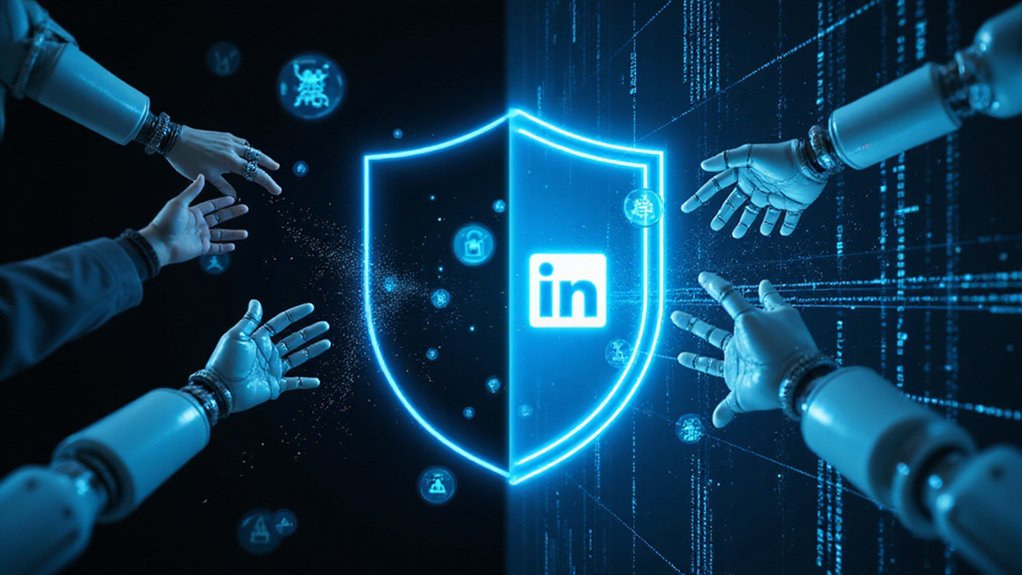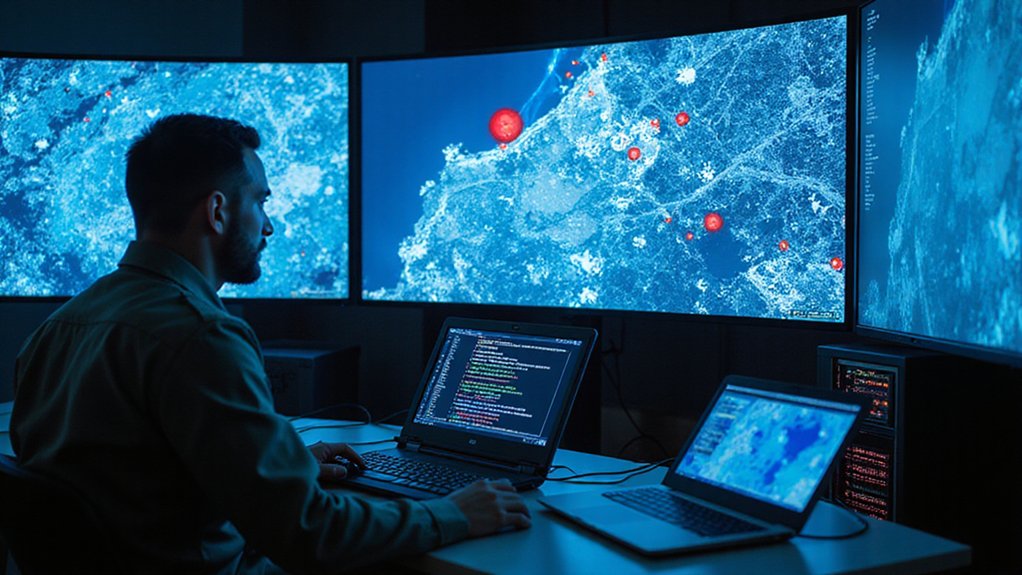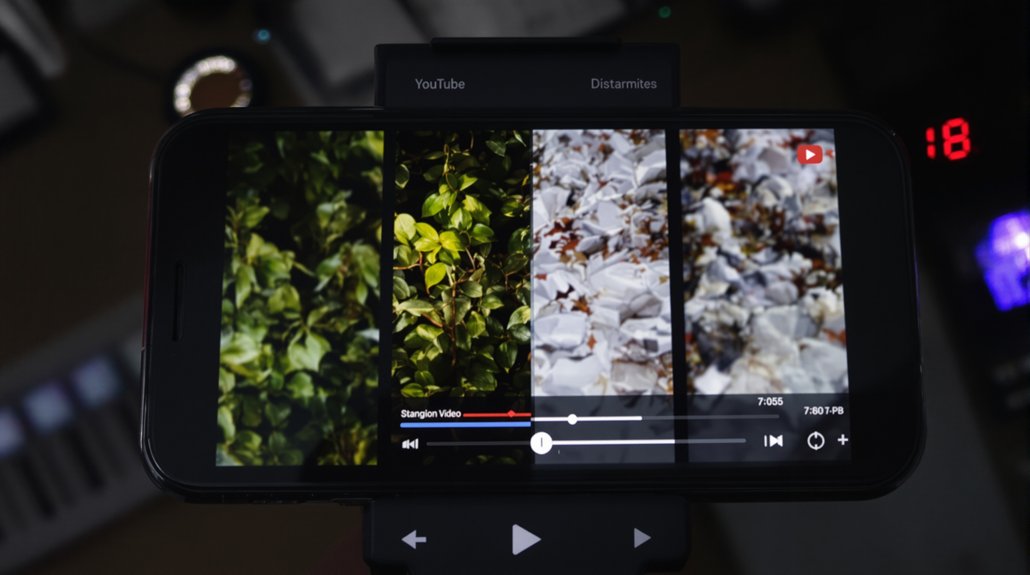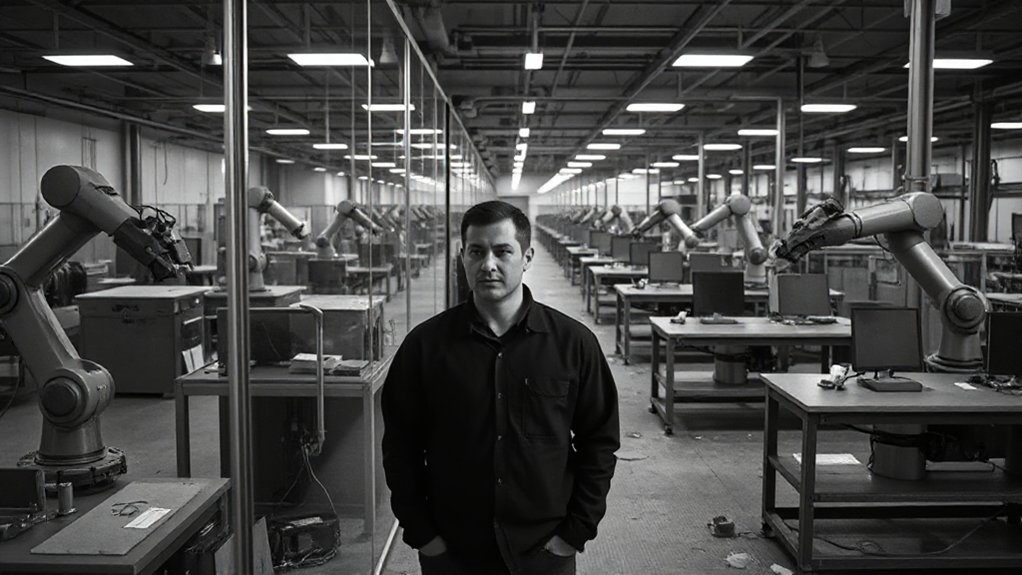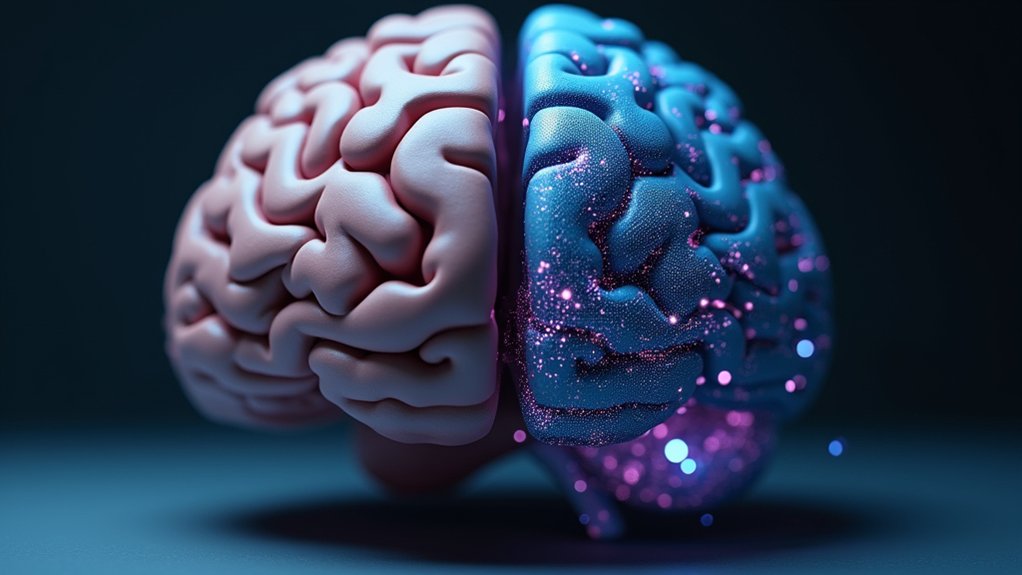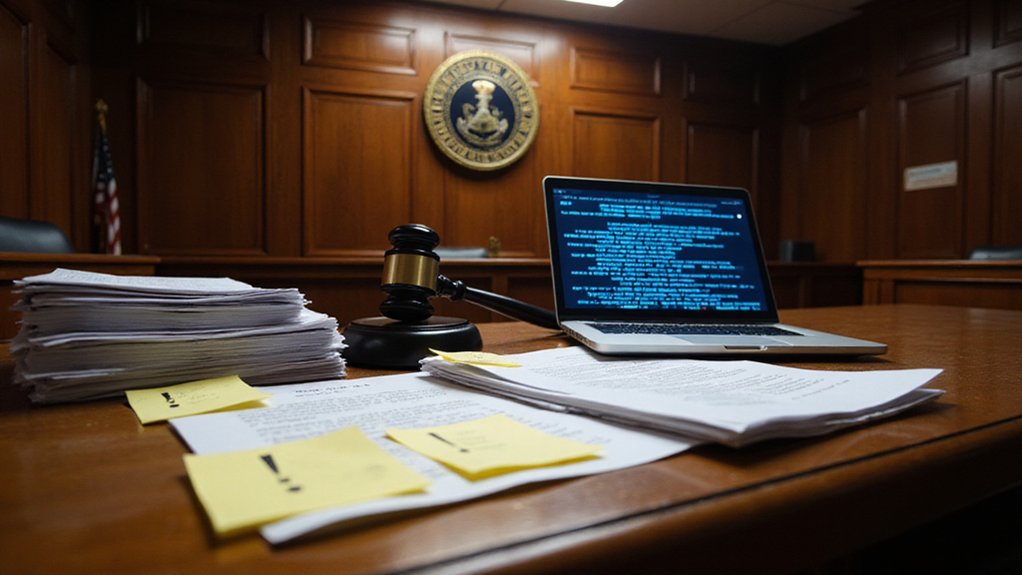As AI transforms from helper to threat, content creators face mounting challenges. AI-powered scams caused $12.5 billion in losses in 2023, with deepfakes increasing 704%. LinkedIn has responded with AI fraud detection tools and profile verification systems. Adobe offers intellectual property safeguards and content analysis to detect unauthorized use. Both companies prioritize original work protection while governments consider new regulations. This bold defense represents just the beginning of the protection battle.
How quickly has AI transformed from a helpful tool to a major threat for content creators? The latest data shows cybercrime complaints led to over $12.5 billion in losses in 2023, with AI making scams more successful than ever. Three in five Americans now fear AI will increase identity theft, and their concerns aren’t without reason.
AI-powered tools that once simply helped create content now enable sophisticated theft. These systems can generate convincing fake profiles, copy writing styles, and produce near-perfect imitations of original work. The technology has evolved so rapidly that traditional protection methods can’t keep up. Security experts predict that 93% of leaders anticipate daily AI-driven attacks by 2025, highlighting the urgent need for improved defenses.
Content creators face serious challenges as AI blurs the lines of copyright ownership. When AI systems train on stolen content, they perpetuate a cycle of theft. Creators suffer financial losses when their work is used without permission. Many also experience emotional distress and damage to their professional reputation. With data privacy considered a human right by 87% of Americans, unauthorized AI use of creative works represents a significant ethical concern.
LinkedIn has responded to these threats by implementing AI-driven fraud detection tools. The platform now uses artificial intelligence to verify content authenticity and identify fake profiles. They’ve also created clear guidelines to help users report suspicious activities and protect their original work.
Adobe has developed specialized content authentication tools to safeguard intellectual property. Their AI-powered content analysis systems can detect unauthorized use of creative works. The growth of AI-generated deepfakes, which saw a 704% increase in 2023, makes these authentication tools increasingly essential. The company also educates users about emerging threats and protection strategies.
Both companies recognize that the fight against AI content theft requires collaboration. They’re working with developers to strengthen security features across their platforms. They’re also building support networks for creators who’ve been victims of theft.
As AI technology continues to advance, the battle to protect original content grows more complex. Governments worldwide are exploring new regulations for AI-generated content. Meanwhile, companies like LinkedIn and Adobe remain at the forefront of defense strategies, working to guarantee creators can safely share their work in an increasingly AI-driven world.
References
- https://ttms.com/ai-security-risks-explained-what-you-need-to-know-in-2025/
- https://www.weforum.org/stories/2025/01/how-ai-driven-fraud-challenges-the-global-economy-and-ways-to-combat-it/
- https://undetectable.ai/research/ai-cybercrime-2025/
- https://www.prnewswire.com/news-releases/an-ai-crime-surge-3-in-5-americans-feel-artificial-intelligence-will-create-more-identity-theft-in-2025-302325386.html
- https://securitybrief.com.au/story/gen-foresees-rising-ai-driven-scams-identity-risks-by-2025
